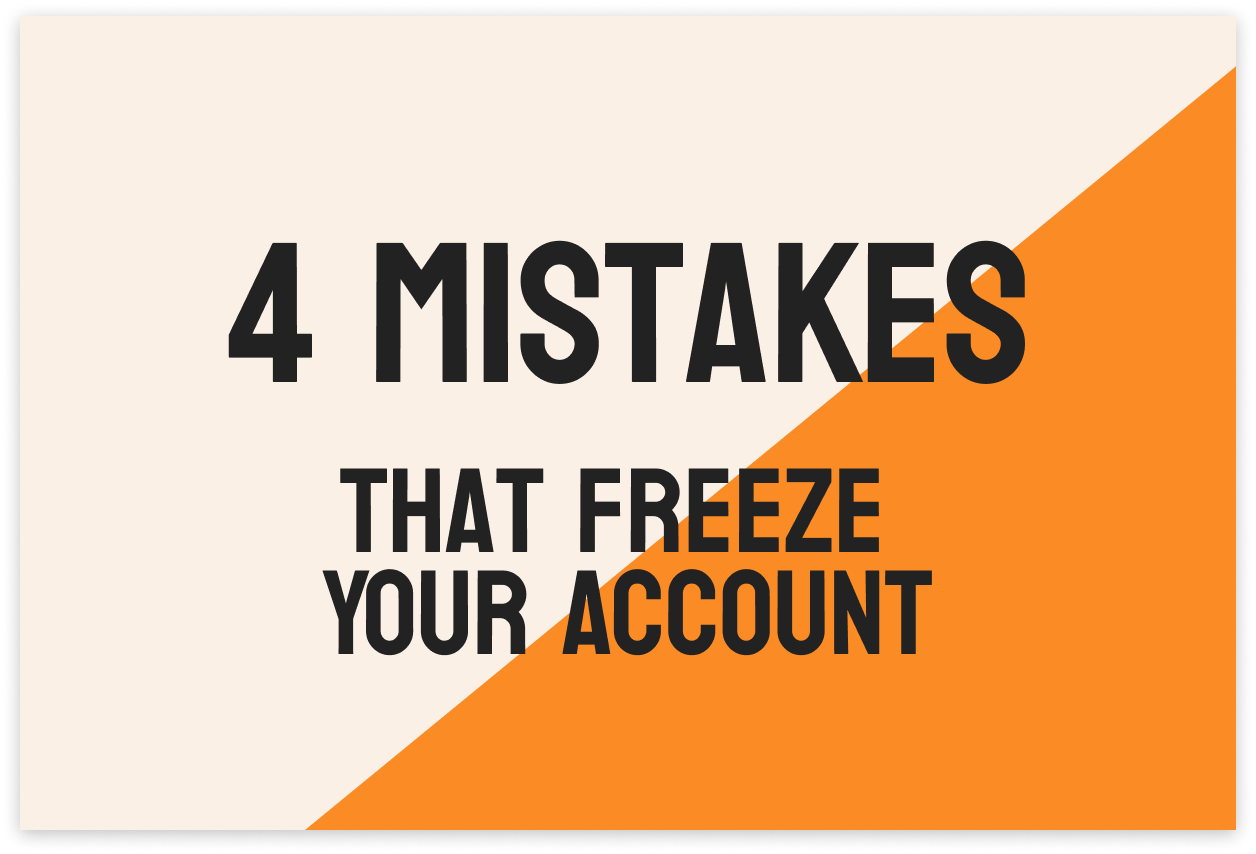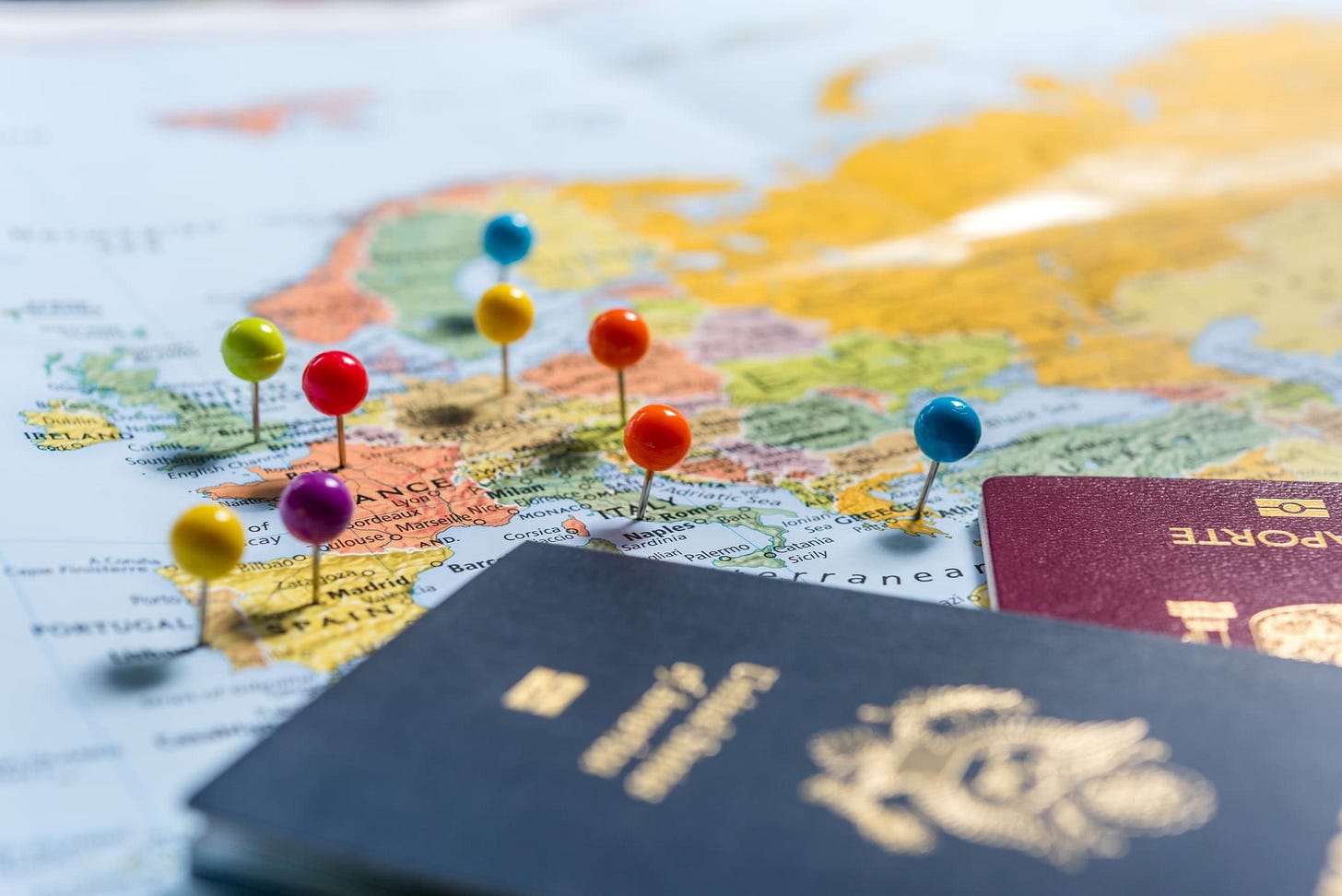4 Mistakes That Get Your Bank Account Frozen Abroad
Avoid those red flags.
All Of The Sudden Your Money Is Gone
One morning, I logged into our company bank account. The balance was zero.
It had over $250k the night before. No warning, no email, no call. Just gone.
The bank had frozen it overnight. We did not do anything illegal. But we made a small mistake. One mistakes that was not intentional and did not seem like a big deal.
If you live or work abroad, some mistakes are not easily forgiven by banks.
Here are four of them…
1. Uploading an Incomplete Document (Without Knowing It)
Our company account had over $250k in it.
One morning, we logged in, and everything was frozen. Balance showed 0.
No warning. No flagged transaction.
We did not do anything unusual. Weeks earlier, we had uploaded a rental agreement for compliance. It was accepted. No issues.
Then, without asking us for anything new, the bank reviewed it again, noticed that the final page of the rental contract was missing, and froze the entire account.
They did not request an updated file. They did not send a follow-up. They just locked it and waited for us to figure it out.
Why this happens
Banks are constantly rechecking documents behind the scenes. Even if something was approved before, they might review it again during a routine audit. If they find a small issue (like a missing signature page) they often don’t tell you. They just take action.
What to do to prevent this
Double-check every document before you upload it: every page, every signature
Assume anything you send may be re-reviewed later (like it was with us)
Keep clean, complete files saved somewhere you can access fast
If your account gets frozen, check old documents before you panic
Ideally (if you can) have a contact at the bank on speed-dial (we didn’t)
In our case, the money was safe. But access was gone. All because of one missing page, and a system that doesn’t always ask before it acts.
It took several weeks for us to get access to our account again. That was not fun, especially if you have to pay people (or just want to pay yourself).
2. Mixing Business and Personal Funds
This one is easy to overlook, especially if you are working solo.
You land a client. They wire the money. It shows up in your personal account. No big deal. Until one day, your bank notices.
Sometimes it is the size of the payment. Sometimes it is the country it came from. Maybe it just doesn’t fit your usual pattern. And suddenly, your account gets flagged for commercial use.
Most personal accounts aren’t meant for receiving business payments. It’s usually in the fine print. And when you cross that line (even by accident) the bank can freeze your funds, limit your access, or close the account entirely.
Why this matters
To you, it is just freelance income. To the bank, it could look like unauthorised commercial activity. Or worse: tax evasion, fraud, or laundering. None of that has to be true. But if they can’t tell what the money is for, they often default to caution.
What to do to prevent this
Open a business account, even as a solo freelancer, e.g. with Wise Business, Revolut Business, N26, Payoneer
Keep your personal and work income clearly separated
Use platforms that show what the money’s for, like invoices, payment memos, or contracts
If you have to use your personal account short-term, don’t make a habit of it
Clean separation makes everything easier. Not just with banks, but also with taxes, accounting, and stress. Think of it as a line you draw once, to avoid explaining yourself later.
3. Not Informing Your Bank When Traveling Abroad
You land in a new country. Grab a coffee. Open your banking app. And it doesn’t work. Or worse: your card gets blocked at checkout.
What happened?
It’s your bank thinking someone just stole your card.
Banks use location and behavior to detect fraud. If you suddenly log in from a different country, or make card payments somewhere unexpected, their system might flag it. Especially if you are using a VPN or jumping between time zones.
Sometimes, they block just the card. But other times, they lock the whole account. Last time that happened to me, I was traveling in Colombia, and paying for a protein shake in the gym. The bank cancelled my card, and I had to rely on the cash I brought with me. Again, not fun.
Why this matters
To a bank, you still “live” in the country you signed up in. So when you move (or even just travel) your new location can look like suspicious activity. Even if it’s totally normal for you.
What to do instead
Let your bank know when you’re changing countries (some apps have a “travel notice” option)
Avoid jumping between too many countries in a short time, especially with high-value transactions
If you use a VPN, don’t log into banking apps with a masked or unstable IP
Consider using remote-friendly banks or fintechs that expect you to move, (again) Wise, Revolut, N26, etc.
Always have a backup credit card handy, and some cash for 1-2 weeks travel
This way, you stay one step ahead of systems that weren’t built for your lifestyle.
4. Leaving a Foreign Account Dormant for Too Long
You opened a bank account in another country. Maybe it was for a visa, a local investment, or just as a backup. It worked. You used it a few times. Then… you forgot about it.
Months later, you try to log in, and it’s locked. Or worse, closed without notice.
Banks do not like accounts that sit idle, especially if they are held by non-residents. If there is no recent activity, no logins, and no clear usage, they may treat it as abandoned. In some cases, they freeze it, other times, they just shut it down altogether.
Why this matters
Dormant accounts look risky. They can trigger fraud checks, money laundering reviews, or internal cleanups, especially in countries with tight banking rules. If the account is tied to your business or legal setup, it can cause real problems.
What to do instead
Make a small transaction every few months, even just a $10 top-up or a transfer
Log in occasionally to show signs of life (if the bank has an app, you can even do this from your phone)
Keep the bank informed of your current address and contact details
If you no longer need the account, close it properly and don’t let it expire silently
Don’t rely on an account that you are barely using. Either use it, or close it.
Your Money Is Global. Your Bank Is Not.
If you are building a life across borders, you can’t assume banks will understand your choices.
Most are still wired for one-country lives. They expect stable addresses, regular paychecks, and predictable routines. The moment you step outside that box, by moving, freelancing, or running a remote business, your account can become a question mark.
That does not mean you have done anything wrong. But in the absence of clear signals, banks often default to caution. That caution can freeze your funds, flag your transactions, or close your account entirely. Without warning, without a call, and sometimes, without a way back (in case you are not doing anything illegal, there’s mostly a way back).
Be smart. Treat your financial setup like your travel gear: keep it clean, minimal, and ready to move. Have backups. Stay organized. Use tools that fit the way you live now, not the life a bank assumes you should have.
Keep your financial systems as intentional as everything else you build.
If you liked this, you might also like …
Thanks for reading and see you soon! ❤️
If you’re enjoying Digital Citizen, tap ❤️ and 🔄 at the top to help more curious minds find their way here. It means a lot.







